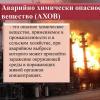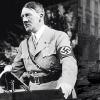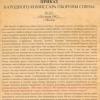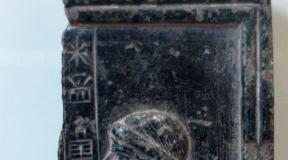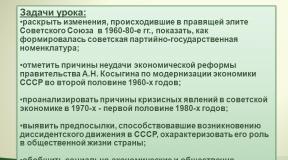Stalin’s order 227 of 1942 “Not a step back”: how Stalin’s order influenced the course of the Great Patriotic War
People's Commissar of Defense of the USSR Joseph Stalin exactly 75 years ago, on July 28, 1942, issued order No. 227. The document is better known as "Not a Step Back!" Why the order was issued at the beginning of the Battle of Stalingrad, but not published during the war, historians told the online publication site.
What Stalin ordered
…"No step back!" without orders from high command. The only reason for leaving positions can only be death!
From order No. 227
In July 1942, the situation was critical on the southern flank of the Soviet-German front: defeats in the Crimea, near Kharkov, Voronezh. The Germans were breaking into the Caucasus to reach the oil fields needed by the Soviet military industry. At this moment the 227th order appeared.

“The essence of the order was this. By the Battle of Stalingrad, we had already lost a lot of resources. More than 70 million people remained in the occupied territories. Yes, a certain parity has developed in industry thanks to the fact that we managed to transfer factories to the east. But the most important thing in which it was superior For us, Germany means discipline, clarity and good organization,” Vladimir Kalina, candidate of philosophical and legal sciences, associate professor of the department of the Russian State University for the Humanities, told the online publication.
“The order stopped people’s panic and had a sobering effect on the army. A line was outlined that said that we can no longer go back, we must stand,” explained the candidate of historical sciences, scientific secretary of the Center for Military History of Russia at the Institute of Russian History in a conversation with a website reporter RAS Boris Serazetdinov.
- Form within the front from one to three penal battalions of 800 people each.
- To form within the armies from five to ten penal companies of up to two hundred people each, to give them the opportunity to atone with blood for their crimes against the Motherland.
According to Vladimir Kalina, by that time the Soviet military had already openly said that laxity and sloppiness reigned in the army. “You can judge the scale of sloppiness as follows. More than a thousand penal battalions were formed for privates and sergeants. For officers - 65 penal battalions. More than 400 thousand people passed through these organizations during the years the order was in effect (about two years - editor's note) ", said the scientist.
Deprived of maneuver
Critics of the document insist that it limited the initiative of local commanders. The military was afraid to leave their positions even for tactical gain. The head of the department for work with state and public organizations of the Russian Military Historical Society Ivan Arkhipov does not agree with this assessment:
“The highest leadership ranks saw more than the officers themselves who were on the ground. Yes, there could be excesses, and this always exists. But the overall task must always be completed. And when leading large formations of troops, the generals fulfilled the assigned task.”
“It is a myth that the order forbade Soviet soldiers to retreat, and if they retreated, the barrier detachments killed them.”
Boris Serazetdinov also agrees with Arkhipov. “It is a myth that the order forbade Soviet soldiers to retreat, and if they retreated, then the barrier detachments killed them. I want to say that this is nonsense. Many of the penal companies and battalions that retreated later even became Heroes of the Soviet Union. This was, and refuse This is not possible. Order No. 227 did not prohibit retreat as such. According to its text, a requirement was put forward - not a step back without an order from senior leadership. This primarily applied to those who left their position without permission,” noted the candidate of historical sciences.
The secret of the order
The text of Order No. 227 was published in the media only in 1988. According to Boris Serazetdinov, the document did not appear in print during the war for reasons of secrecy. Although the Germans still found out about him pretty quickly. The order was read out on all fronts, armies, formations, fleets, divisions, battalions, companies and platoons. The fighters had different attitudes towards him.
“My good friend lawyer Berenzon was near Stalingrad when the battle was going on,” said Vladimir Kalina. “He told me that when the order was read out to them, the personnel were lined up, they kissed the banner, bowed their knee and swore.”
“It cannot be said that the majority had decadent moods. Out of 100 people, it could be one or two people. Detachments from August 1 to October 1, 1942 detained approximately 36 thousand people on the Don Front who fled. These are NKVD reports. Many were later returned back to their units at peripheral points, or sent to penal companies. Of these 36 thousand people, 433 people were shot,” added Boris Serazetdinov.
In the fall of 1944, Stalin disbanded the barrage detachments. The course of the war had already changed, and it was no longer necessary to maintain discipline at the front with such harsh measures.
The Battle of Stalingrad began on July 17, 1942 and lasted 200 days. On February 2, 1943, the German group led by Field Marshal Paulus capitulated. The bloodiest battle of the Second World War, which claimed hundreds of thousands of lives, allowed the Red Army to go on the offensive along the entire front.
FAILURES OF THE SOVIET FORCES IN THE SPRING-SUMMER OF 1942
From the results of the 1941 campaign, the leaders of the opposing sides drew different conclusions. The Soviet command, and above all, the results of the Moscow battle, formed the basis for organizing the offensive of Soviet troops along the entire Leningrad-Demyansk-Vyazma-Kharkov-Crimea front line (Directive of April 8, 1942). At the same time, active actions of the Wehrmacht were envisaged only in the direction of Moscow, which was a gross miscalculation, since German troops were concentrated in the southeastern, and not in the central, direction.
In April-October 1942, Soviet troops suffered a series of heavy defeats. Near Leningrad, during the Lyuban operation, the 2nd shock army of the Volkhov Front under the command of A. A. Vlasov, who, after his capture on July 13, 1942, began to collaborate with the Germans, was surrounded and destroyed. In total, 60 thousand people died or went missing in the Myasnoy Bor area. The Red Army suffered a major defeat during the Rzhev-Vyazemsk offensive operation (January 8 - April 20). It was not possible to encircle the German units near Vyazma; moreover, the 33rd Army of General Efremov, the 1st Guards Cavalry Corps of Belov and units of the airborne troops, thrown behind enemy lines, were surrounded. Soviet losses amounted to 272 thousand people. The spring offensives in the Crimea and near Kharkov were unsuccessful. Large formations, up to 200 thousand fighters, were surrounded in the Kharkov region as a result of an unsuccessful offensive operation. On July 4, 1942, after eight months of resistance, Sevastopol fell (during the occupation, 27 thousand inhabitants of the city were killed, and 42 thousand were driven away to Germany). Two days earlier, on July 2, 1942, the Soviet defense at the junction of the Bryansk and South-Western fronts was broken through, and on July 24, Soviet troops left Rostov-on-Don (loses among the civilian population amounted to about 40 thousand inhabitants, 53 were driven to Germany thousand people).
Under these conditions, on July 28, 1942, the State Defense Committee issued order No. 227 “Not a step back!”, aimed at restoring military discipline, primarily through punitive measures. Soviet troops went over to a fierce defense in the Caucasus and the Stalingrad direction. The concentration of Red Army units and reserves mainly in one direction in Stalingrad and the scattering of the efforts of German troops created the preconditions for changing the course of the war. This was facilitated by the militarization of the Soviet economy, which was completed by the end of 1942, including the introduction of new and evacuated factories in the east of the country. The developing popular partisan movement, which attracted up to 10% of the Wehrmacht troops, also played a significant role.
I.S. Ratkovsky, M.V. Khodyakov. History of Soviet Russia
“IT’S TIME TO END THE RETREAT”
Every commander, Red Army soldier and political worker must understand that our funds are not unlimited. The territory of the Soviet state is not a desert, but people - workers, peasants, intelligentsia, our fathers, mothers, wives, brothers, children. The territory of the USSR, which the enemy has captured and is trying to capture, is bread and other products for the army and home front, metal and fuel for industry, factories, plants supplying the army with weapons and ammunition, and railways. After the loss of Ukraine, Belarus, the Baltic states, Donbass and other regions, we have much less territory, which means there are much fewer people, bread, metal, plants, factories. We have lost more than 70 million people, more than 800 million pounds of grain per year and more than 10 million tons of metal per year. We no longer have a superiority over the Germans either in human reserves or in grain reserves. To retreat further means to ruin ourselves and at the same time ruin our Motherland. Each new piece of territory we leave behind will strengthen the enemy in every possible way and weaken our defenses, our Motherland, in every possible way.
Therefore, we must completely stop the talk that we have the opportunity to retreat endlessly, that we have a lot of territory, our country is large and rich, there is a lot of population, there will always be plenty of grain. Such conversations are false and harmful, they weaken us and strengthen the enemy, because if we do not stop the retreat, we will be left without bread, without fuel, without metal, without raw materials, without factories and factories, without railways.
It follows from this that it is time to end the retreat.
No step back! This should now be our main call.
We must stubbornly, to the last drop of blood, defend every position, every meter of Soviet territory, cling to every piece of Soviet land and defend it to the last opportunity.
Our Motherland is going through difficult days. We must stop, and then push back and defeat the enemy, no matter the cost. The Germans are not as strong as the alarmists think. They are straining their last strength. To withstand their blow now, in the next few months, means ensuring victory for us.
Can we withstand the blow and then push the enemy back to the west? Yes, we can, because our factories and factories in the rear are now working perfectly, and our front is receiving more and more planes, tanks, artillery, and mortars.
What do we lack?
There is a lack of order and discipline in companies, battalions, regiments, divisions, tank units, and air squadrons. This is now our main drawback. We must establish the strictest order and iron discipline in our army if we want to save the situation and defend our Motherland.
We cannot tolerate any more commanders, commissars, and political workers whose units and formations leave combat positions without permission. We cannot tolerate it any longer when commanders, commissars, and political workers allow a few alarmists to determine the situation on the battlefield, so that they drag other fighters into retreat and open the front to the enemy.
Alarmists and cowards must be exterminated on the spot.
From now on, the iron law of discipline for every commander, Red Army soldier, and political worker should be the requirement - not a step back without an order from the high command.
Commanders of a company, battalion, regiment, division, corresponding commissars and political workers who retreat from a combat position without orders from above are traitors to the Motherland. Such commanders and political workers must be treated as traitors to the Motherland.
This is the call of our Motherland.
To fulfill this call means to defend our land, save the Motherland, destroy and defeat the hated enemy.
After their winter retreat under the pressure of the Red Army, when discipline weakened in the German troops, the Germans took some harsh measures to restore discipline, which led to good results. They formed more than 100 penal companies from soldiers who had violated discipline due to cowardice or instability, placed them in dangerous sectors of the front and ordered them to atone for their sins with blood. They formed, further, about a dozen penal battalions from commanders who were guilty of violating discipline due to cowardice or instability, deprived them of their orders, placed them in even more dangerous sectors of the front and ordered them to atone for their sins with blood. They finally formed special barrage detachments, placed them behind unstable divisions and ordered them to shoot panickers on the spot if they attempted to leave their positions without permission or if they attempted to surrender. As you know, these measures had their effect, and now the German troops are fighting better than they fought in the winter. And so it turns out that the German troops have good discipline, although they do not have the lofty goal of protecting their homeland, but have only one predatory goal - to conquer a foreign country, and our troops, who have the lofty goal of protecting their desecrated homeland, do not have such discipline and tolerate due to this defeat.
Shouldn't we learn from our enemies in this matter, just as our ancestors learned from their enemies in the past and then defeated them?
I think it should.
The Supreme Command of the Red Army orders:
1. To the military councils of the fronts and, above all, to the commanders of the fronts:
a) unconditionally eliminate retreating sentiments in the troops and suppress with an iron fist the propaganda that we can and should allegedly retreat further to the east, that such a retreat will supposedly cause no harm;
b) unconditionally remove from post and send to Headquarters to bring to a military court the commanders of the armies who allowed the unauthorized withdrawal of troops from their positions, without an order from the front command;
c) form within the front from one to three (depending on the situation) penal battalions (800 people each), where to send middle and senior commanders and relevant political workers of all branches of the military who are guilty of violating discipline due to cowardice or instability, and place them on more difficult sections of the front to give them the opportunity to atone for their crimes against the Motherland with blood.
2. To the military councils of the armies and, above all, to the commanders of the armies:
a) unconditionally remove from their posts the commanders and commissars of corps and divisions who allowed the unauthorized withdrawal of troops from their positions without an order from the army command, and send them to the military council of the front to be brought before a military court;
b) form within the army 3 - 5 well-armed barrage detachments (up to 200 people in each), place them in the immediate rear of unstable divisions and oblige them, in the event of panic and disorderly withdrawal of division units, to shoot panickers and cowards on the spot and thereby help honest fighters divisions to fulfill their duty to the Motherland;
c) form within the army from five to ten (depending on the situation) penal companies (from 150 to 200 people in each), where to send ordinary soldiers and junior commanders who have violated discipline due to cowardice or instability, and place them in difficult areas army to give them the opportunity to atone for their crimes against their homeland with blood.
3. To commanders and commissars of corps and divisions:
a) unconditionally remove from their posts the commanders and commissars of regiments and battalions that allowed the unauthorized withdrawal of units without an order from the corps or division commander, take away their orders and medals and send them to the military councils of the front to be brought before a military court;
b) provide all possible assistance and support to the army’s barrage detachments in strengthening order and discipline in the units.
The order should be read in all companies, squadrons, batteries, squadrons, teams, and headquarters.
People's Commissar of Defense of the USSR
I. STALIN
Order of the NCO of the USSR dated July 28, 1942 No. 227 “On measures to strengthen discipline and order in the Red Army and the prohibition of unauthorized withdrawal from combat positions”
CREATION OF BARRIER FORTS
The experience of fighting German fascism has shown that in our rifle divisions there are many panicky and downright hostile elements who, at the first pressure from the enemy, throw down their weapons and begin shouting: “We are surrounded!” and drag the rest of the fighters along with them. As a result of such actions by these elements, the division takes flight, abandons its material unit, and then begins to emerge from the forest alone. Similar phenomena are taking place on all fronts. If the commanders and commissars of such divisions were up to the task, alarmist and hostile elements could not gain the upper hand in the division. But the trouble is that we don’t have many strong and stable commanders and commissars.
In order to prevent the above undesirable phenomena at the front, the Headquarters of the Supreme High Command orders:
1. In each division, have a defensive detachment of reliable fighters, no more than a battalion in number (calculating 1 company per rifle regiment), subordinate to the division commander and having at its disposal, in addition to conventional weapons, vehicles in the form of trucks and several tanks or armored vehicles.
2. The tasks of the barrage detachment should be considered to be direct assistance to the command staff in maintaining and establishing firm discipline in the division, stopping the flight of panic-stricken military personnel without stopping before using weapons, eliminating the initiators of panic and flight, supporting honest and fighting elements of the division, not subject to panic, but carried away by the common escape.
Headquarters of the Supreme High Command
I. Stalin
B. Shaposhnikov
THE ROLE OF BARRIER DETACHMENTS IN THE RED ARMY
The barrier detachment set up posts on roads and bridges, patrolled the area... The personnel of the barrier detachments, especially at the first stage, had no idea about the tasks facing them; when serving at the post, they often did not check documents and let everyone through without hindrance, and the Red Army soldiers of the front units did not always obeyed his demands.
Moreover, the activities of the barrier detachments were not limited to carrying out barrage tasks. Being located in the near rear, the barrier detachments themselves often found themselves under attacks from enemy aircraft and under artillery fire, sometimes even forced to engage in battle with the enemy...
As we see, the barrage detachments, created by order No. 227 “not a step back!”, had no relation to the NKVD, but consisted of soldiers and commanders of the Red Army. They served at posts and on patrols, while their main activity was not punitive measures, but carrying out tasks to maintain order and suppress the unreasonable movement of military personnel in the near rear.
Despite the presence of automatic weapons in the detachments, their separately located posts and patrols were unlikely to be able to stop the masses of infantry in the event of a disorderly retreat... Thus, based on the above, we can say that none of the above “characteristic features” of the detachments is documented, but rather, on the contrary, it is refuted.
E.V. Kovyrshin. On the issue of barrage detachments in the Red Army
DISFORMATION OF THE DEPRESSION DETAILS
Due to changes in the general situation at the fronts, the need for further maintenance of barrage detachments61 disappeared. I order:
1. Disband individual barrage detachments by November 15, 1944. The personnel of the disbanded detachments will be used to replenish rifle divisions.
People's Commissar of Defense of the USSR Marshal of the Soviet Union I. STALIN
Order No. 227 (Not a step back) dated July 28, 1942 by the People's Commissar of the USSR on the prohibition of withdrawal from occupied positions without an order and measures to ensure it.
The enemy throws more and more forces to the front and, regardless of the great losses for him, climbs forward, rushes deep into the Soviet Union, captures new areas, devastates and ruins our cities and villages, rapes, robs and kills the Soviet population. Fighting is taking place in the Voronezh region, on the Don, in the south at the gates of the North Caucasus.
The German occupiers are rushing towards Stalingrad, towards the Volga and want to capture Kuban and the North Caucasus with their oil and grain riches at any cost. The enemy has already captured Voroshilovgrad, Starobelsk, Rossosh, Kupyansk, Valuiki, Novocherkassk, Rostov-on-Don, and half of Voronezh. Part of the troops of the Southern Front, following the alarmists, left Rostov and Novocherkassk without serious resistance and without orders from Moscow, covering their banners with shame.
The population of our country, who treats the Red Army with love and respect, begins to become disillusioned with it, loses faith in the Red Army, and many of them curse the Red Army for putting our people under the yoke of the German oppressors, and itself flowing to the east.
Some stupid people at the front console themselves by saying that we can continue to retreat to the east, since we have a lot of territory, a lot of land, a lot of population and that we will always have plenty of grain. With this they want to justify their shameful behavior at the front. But such conversations are completely false and deceitful, beneficial only to our enemies.
Every commander, Red Army soldier and political worker must understand that our funds are not unlimited. The territory of the Soviet state is not a desert, but people - workers, peasants, intelligentsia, our fathers, mothers, wives, brothers, children. The territory of the USSR, which the enemy captured and is trying to capture, is bread and other products for the army and home front, metal and fuel for industry, factories, plants supplying the army with weapons and ammunition, and railways. After the loss of Ukraine, Belarus, the Baltic states, Donbass and other regions, we have much less territory, therefore, there are much fewer people, bread, metal, plants, factories. We have lost more than 70 million people, more than 800 million pounds of grain per year and more than 10 million tons of metal per year. We no longer have a superiority over the Germans either in human reserves or in grain reserves. To retreat further means to ruin ourselves and at the same time ruin our Motherland. Each new piece of territory we leave behind will strengthen the enemy in every possible way and weaken our defenses, our Motherland, in every possible way.
Therefore, we must completely stop the talk that we have the opportunity to retreat endlessly, that we have a lot of territory, our country is large and rich, there is a lot of population, there will always be plenty of grain. Such conversations are false and harmful, they weaken us and strengthen the enemy, because if we do not stop retreating, we will be left without bread, without fuel, without metal, without raw materials, without factories and factories, without railways.
It follows from this that it is time to end the retreat.
No step back! This should now be our main call. We must stubbornly, to the last drop of blood, defend every position, every meter of Soviet territory, cling to every piece of Soviet land and defend it to the last opportunity. Our Motherland is going through difficult days. We must stop, and then push back and defeat the enemy, no matter the cost. The Germans are not as strong as the alarmists think. They are straining their last strength. To withstand their blow now, in the next few months, means ensuring our victory.
Can we withstand the blow and then push the enemy back to the west? Yes, we can, because our factories in the rear are now working perfectly and our front is receiving more and more planes, tanks, artillery, and mortars.
What do we lack?
There is a lack of order and discipline in companies, battalions, regiments, divisions, tank units, and air squadrons. This is now our main drawback. We must establish the strictest order and iron discipline in our army if we want to save the situation and defend our Motherland.
We cannot tolerate any more commanders, commissars, and political workers whose units and formations leave combat positions without permission. We cannot tolerate it any longer when commanders, commissars, and political workers allow a few alarmists to determine the situation on the battlefield, so that they drag other fighters into retreat and open the front to the enemy.
Alarmists and cowards must be exterminated on the spot.
From now on, the iron law of discipline for every commander, Red Army soldier, and political worker should be the requirement - not a step back without an order from the high command.
Commanders of a company, battalion, regiment, division, corresponding commissars and political workers who retreat from a combat position without orders from above are traitors to the Motherland. Such commanders and political workers must be treated as traitors to the Motherland.
To fulfill this call means to defend our land, save the Motherland, destroy and defeat the hated enemy.
After their winter retreat under the pressure of the Red Army, when discipline weakened in the German troops, the Germans took some harsh measures to restore discipline, which led to good results. They formed more than 100 penal companies from soldiers who had violated discipline due to cowardice or instability, placed them in dangerous sectors of the front and ordered them to atone for their sins with blood. They formed, further, about a dozen penal battalions from commanders who were guilty of violating discipline due to cowardice or instability, deprived them of their orders, placed them in even more dangerous sectors of the front and ordered them to atone for their sins. They finally formed special barrage detachments, placed them behind unstable divisions and ordered them to shoot panickers on the spot if they attempted to leave their positions without permission or if they attempted to surrender. As you know, these measures had their effect, and now the German troops are fighting better than they fought in the winter. And so it turns out that the German troops have good discipline, although they do not have the lofty goal of defending their homeland, but have only one predatory goal to conquer a foreign country, and our troops, who have the lofty goal of defending their desecrated homeland, do not have such discipline and suffer because this defeat.
Shouldn't we learn from our enemies in this matter, just as our ancestors learned from their enemies in the past and then defeated them?
I think it should.
The Supreme Command of the Red Army orders:
1. To the military councils of the fronts and, above all, to the commanders of the fronts:
a) unconditionally eliminate retreating sentiments in the troops and suppress with an iron fist the propaganda that we can and should allegedly retreat further to the east, that such a retreat will supposedly cause no harm;
b) unconditionally remove from post and send to headquarters to bring to a military court army commanders who allowed the unauthorized withdrawal of troops from their positions without an order from the front command;
c) form within the front from one to three (depending on the situation) penal battalions (800 people each), where to send middle and senior commanders and relevant political workers of all branches of the military who are guilty of violating discipline due to cowardice or instability, and place them on more difficult sections of the front to give them the opportunity to atone for their crimes against the Motherland with blood.
2. To the military councils of the armies and, above all, to the commanders of the armies:
a) unconditionally remove from their posts the commanders and commissars of corps and divisions who allowed the unauthorized withdrawal of troops from their positions without an order from the army command, and send them to the military council of the front to be brought before a military court;
b) form within the army 3-5 well-armed barrage detachments (up to 200 people in each), place them in the immediate rear of unstable divisions and oblige them, in the event of panic and disorderly withdrawal of division units, to shoot panickers and cowards on the spot and thereby help honest fighters divisions to fulfill their duty to the Motherland;
c) form within the army from five to ten (depending on the situation) penal companies (from 150 to 200 people in each), where to send ordinary soldiers and junior commanders who have violated discipline due to cowardice or instability, and place them in difficult areas army to give them the opportunity to atone for their crimes against their homeland with blood.
3. To commanders and commissars of corps and divisions:
a) unconditionally remove from their posts the commanders and commissars of regiments and battalions that allowed the unauthorized withdrawal of units without an order from the corps or division commander, take away their orders and medals and send them to the military councils of the front to be brought before a military court;
b) provide all possible assistance and support to the army’s barrage detachments in strengthening order and discipline in the units. The order should be read in all companies, squadrons, batteries, squadrons, teams, and headquarters.
PEOPLE'S COMMISSIONER OF DEFENSE I. STALIN
We bring to your attention the article “On the issue of barrage detachments in the Red Army” by Evgeny Kovyrshin, published on the website of the Ministry of Defense. Below the article is the full text of order N227 “Not a step back”
---
On July 28, 1942, the order of the People's Commissar of Defense of the USSR No. 227 was issued, known as “Not a step back!”, which is associated with the appearance of barrage detachments in the Red Army.
For a long time this topic was taboo, and historians tried to avoid it. But the last two decades of glasnost have not brought any serious changes - barrier detachments continue to remain a little-studied phenomenon. Of course, quite a lot is said about them in the media and on the Internet.
An ominous image is drawn of the “executioners from the NKVD”, who, conveniently sitting behind the battle formations of the front-line units, were just waiting for the latter to begin to retreat without orders, so that they could begin to mercilessly shoot them with machine guns and machine guns. Moreover, all this, as a rule, is given to illustrate the “cannibalistic” essence of the Stalinist regime. However, the majority of “whistleblowers” and “indictors” sin in that they do not consider it necessary to at least in some way support their statements with references to documents.
Let's try to correct this shortcoming and, using archival materials, separate truth from fiction.

First of all, let's name the “characteristic features” that are usually attributed to the detachments: these were the formations of the People's Commissariat of Internal Affairs (NKVD) of the USSR; they were equipped with the latest automatic weapons and vehicles, were capable of destroying manpower in significant quantities, and always (or almost always) managed to turn around on the escape routes of military units and subunits, i.e. were highly mobile; Almost everyone who came into their field of vision was shot on the spot.
Now let's find out how true the above is.
To begin with, it should be noted that the NKVD barrage detachments were created in accordance with the resolution of the Council of People's Commissars of the USSR dated June 24, 1941 and were disbanded at the end of 1941 - beginning of 1942. Next, let us turn to order No. 227. Only one paragraph is dedicated to barrier detachments: “... to the military councils of the armies and, first of all, to the commanders of the armies... b) form within the army 3-5 well-armed barrier detachments (up to 200 people in each), place them in the immediate rear of unstable divisions and oblige them “in case of panic and disorderly withdrawal of division units, shoot panickers and cowards on the spot and thereby help honest soldiers fulfill their duty to the Motherland...”.
As we can see, the formation of detachments was entrusted to military councils and commanders, i.e. to the army command and control bodies, and the NKVD, represented in the front-line zone by the chief of troops for rear security, is not mentioned here at all. Further, it was necessary to shoot only “in case of panic and disorderly withdrawal,” and even then only “panicists and cowards.” This does not in any way resemble an order to carry out mass executions.
Now let's turn to archival materials about the barrier detachments themselves. Let's take the 8th Army of the Volkhov Front as an example. Since Order No. 227 did not determine the staff of the barrier detachment, and without it it is impossible to form a unit, the commander of the front troops, Army General K.A. Meretskov, by directive of August 3, 1942, approved the staff of the “Army Separate Barrage Detachment” of 3 or 4 companies.
The strength of the detachment according to this state was 572 and 733 people with 3 and 4 companies, respectively. Motor transport in both versions - 2 GAZ-AA cars. The armament referred to in the document under the title “Material” had the following numbers: heavy machine guns - 4, light machine guns DP - 18 (24); PPSh and PPD submachine guns - 428 (567); rifles and carbines - 53(54).
The command staff of the 8th Army barrier detachment consisted of 29 people according to the list (34 according to the staff). All commanders were transferred from equivalent positions from the 128th, 265th and 286th rifle divisions, or from the front reserve. Among them there were 13 communists, 7 Komsomol members, 8 candidates for membership of the CPSU(b), 6 non-party members. Moreover, among the non-party members is the deputy commander of the detachment, senior lieutenant A.K. Shvetsov.
It was possible to find a mention of at least some relation of these persons to the NKVD only in relation to the detachment commander, Captain P.A. Merenkov, transferred from the post of battalion commander of the 450th Infantry Regiment of the 265th Infantry Division. In 1937, he completed courses for political instructors of the NKVD troops.
During August 1942, the detachment was replenished with personnel (mostly the teams arrived from the 220th reserve army regiment). However, organizational measures were completed only at the end of October, since by order of NKO No. 298 of September 26, 1942, the staff of 04/391 of the “Separate Barrage Detachment of the Active Army” was approved, which differed significantly from that introduced by the front command (see appendix).
According to the order for a separate army barrier detachment of the 8th Army No. 78 dated October 31, 1942, it was considered formed according to the staff 04/391 with a list strength of 202 people. The only one of the 12 commanders connected in one way or another with the “organs” was the chief of staff, Lieutenant A.D. Kitashev (who at one time graduated from the OGPU school), but at the same time he was non-partisan.
At the same time, for example, in the 7th separate barrage detachment of the 54th Army, not a single commander had anything to do with the NKVD. Of the 599 soldiers and junior commanders who served in the detachment from August 15, 1942 to June 25, 1943, only three were connected with the NKVD in one way or another: Sergeant P.I. Tolkachev, who served in the NKVD before being drafted, and Red Army soldiers D.P. Ivanov and P.I. Eliseev. One was an “NKVD guard”, the other was an investigator.
However, let’s return to the 3rd separate barrage detachment of the 8th Army, which began performing service and combat missions at the end of August 1942.
The barrier detachment set up posts on roads and bridges and patrolled the area. In the period from August 22 to December 31, 1942, he detained 958 military personnel, mostly without documents, lagging behind units or lost, in rare cases, “crossbows” and deserters, and several people “for rudeness.” The fate of the detainees was as follows: 141 people were transferred to a special department of the NKVD, another one to the 4th department (fighting saboteurs and parachute landings), the remaining 816 people were released either immediately or after identification. This doesn't look like mass shootings at all. The personnel of the barrier detachments, especially at the first stage, had no idea about the tasks facing them; when serving at the post, they often did not check documents and let everyone through without hindrance, and the Red Army soldiers of the front units did not always obey his demands.
Moreover, the activities of the barrier detachments were not limited to carrying out barrage tasks. Located in the near rear, the barrier detachments themselves often found themselves under enemy air attacks and artillery fire, sometimes even forced to engage in battle with the enemy. So, on October 27, 1942, the 2nd platoon of the 2nd company of the 8th Army barrier detachment took up defense in the gap between the battle formations of the 265th and 1100th rifle regiments and, using a heavy machine gun left by the 3rd battalion of the 1100th regiment, repelled German attacks for several hours.
As we see, the barrage detachments, created by order No. 227 “not a step back!”, had no relation to the NKVD, but consisted of soldiers and commanders of the Red Army. They served at posts and on patrols, while their main activity was not punitive measures, but carrying out tasks to maintain order and suppress the unreasonable movement of military personnel in the near rear.
Despite the presence of automatic weapons in the barrier detachments, their separately located posts and patrols were unlikely to be able to stop the masses of infantry in the event of a disorderly retreat. They could not quickly respond to changes in the situation due to insufficient means of communication (as a rule, communication was carried out by “pedestrian messengers”) and transport. Thus, based on the above, we can say that none of the above “characteristic features” of the military detachments is documented, but rather, on the contrary, is refuted.
Application
State 04/391
"Separate barrage detachment of the active army"
(Order of the USSR NKO No. 298 dated September 26, 1942)
I. Organization
1. Command
2. Two platoons of machine gunners
3. Two rifle platoons
4. Machine gun platoon
5. Medical platoon
6. Transport and utility platoon
II. Personnel
Command staff - 9
Chief - 3
Junior command and command staff - 41
Enlisted personnel - 147
Total: 200 people
III. Armament
Rifles - 71
Submachine guns - 107
DP light machine guns - 8
Heavy machine guns - 6
IV. Transport
Passenger cars - 1
Trucks - 4
Field kitchen of artillery type - 1
I. Command
Squad leader (major) - 1
Military commissar (battalion commissar) - 1
Deputy squad leader (captain) - 1
Senior adjutant (senior lieutenant) - 1
Office manager - treasurer (senior lieutenant) - 1
Total: 5
II. Two platoons of machine gunners
Squad leader (sergeant) - 8
Submachine gunner (Red Army soldier) - 80
Total: 92
III. Two rifle platoons
Platoon commander (senior lieutenant) - 2
Platoon commander (senior sergeant) - 2
Squad leader (sergeant) - 4
Deputy squad commander, also a light machine gun gunner (junior sergeant) - 8
Machine gunner (Red Army soldier) - 8
Shooter (Red Army) - 28
Total: 52
IV. Machine gun platoon
Platoon commander (senior lieutenant) - 1
Platoon commander (senior sergeant) - 1
Squad leader (sergeant) - 6
Deputy squad leader, also a heavy machine gun gunner (junior sergeant) - 6
Machine gunner, senior machine gunner (Red Army soldier) - 24
Total: 38
V. Medical platoon
Paramedic (military paramedic) - 1
Medical instructor (senior sergeant) - 1
Orderly (Red Army soldier) - 2
Total: 4
VI. Transport and utility platoon
Sergeant major (sergeant major) - 1
Captain-clerk (senior sergeant of administrative service) - 1
Senior cook (administrative service sergeant) - 1
Senior driver (corporal) - 1
Driver (Red Army soldier) - 4
Total: 8
Total number in the squad: 200 people
TsAMO RF. Fund of the “Separate Army Barrier Detachment of the 8th Army.” Op. 43665. D. 1. L. 6, 7.
___________________
NOTES
1 Military history magazine. 1988. No. 8. P. 75.
2 Central Archive of the Ministry of Defense of the Russian Federation. Fund of the 3rd separate army barrage detachment of the 8th Army. Op. 43665. D. 1. L. 1.
3 Ibid.
4 Ibid.
5 Ibid. L. 1 vol.
6 Ibid. Op. 36256. D. 2. L. 1-14.
7 Ibid. L. 1 rev., 2.
8 Ibid. D. 1. L. 13 rev., 14, 15.
9 Ibid. L. 59.
10 Ibid. Op. 43419. D. 2. L. 2 vol., 3.
11 Ibid. Fund of the 7th separate army barrage detachment. Op. 42185. D. 1. L. 20, 21, 27 vol., 28.
12 Ibid. Fund of the 3rd separate army barrage detachment. Op. 36256. D. 11. L. 1-145.
13 Ibid. L. 37 rev.
Order of the People's Commissar of Defense of the USSR No. 227
The enemy throws more and more forces to the front and, regardless of the great losses for him, climbs forward, rushes deep into the Soviet Union, captures new areas, devastates and ruins our cities and villages, rapes, robs and kills the Soviet population. Fighting is taking place in the Voronezh region, on the Don, in the south at the gates of the North Caucasus. The German occupiers are rushing towards Stalingrad, towards the Volga and want to capture Kuban and the North Caucasus with their oil and grain riches at any cost. The enemy has already captured Voroshilovgrad, Starobelsk, Rossosh, Kupyansk, Valuiki, Novocherkassk, Rostov-on-Don, and half of Voronezh.
Part of the troops of the Southern Front, following the alarmists, left Rostov and Novocherkassk without serious resistance and without orders from Moscow, covering their banners with shame.
The population of our country, who treats the Red Army with love and respect, begins to become disillusioned with it, loses faith in the Red Army, and many of them curse the Red Army for putting our people under the yoke of the German oppressors, and itself flowing to the east.
Some stupid people at the front console themselves by saying that we can continue to retreat to the east, since we have a lot of territory, a lot of land, a lot of population and that we will always have plenty of grain. With this they want to justify their shameful behavior at the front. But such conversations are completely false and deceitful, beneficial only to our enemies.
Every commander, every Red Army soldier and political worker must understand that our funds are not unlimited. The territory of the Soviet Union is not a desert, but people - workers, peasants, intelligentsia, our fathers and mothers, wives, brothers, children. The territory of the USSR, which the enemy has captured and is trying to capture, includes bread and other products for the army and home front, metal and fuel for industry, factories, factories supplying the army with weapons and ammunition, and railways.
After the loss of Ukraine, Belarus, the Baltic states, Donbass and other regions, we have less territory, which means there are much fewer people, bread, metal, plants, factories. We lost more than 70 million people, more than 80 million pounds of grain per year and more than 10 million tons of metal per year. We no longer have a superiority over the Germans either in human resources or in grain reserves. To retreat further means to ruin ourselves and at the same time ruin our Motherland. Each new piece of territory we leave behind will strengthen the enemy in every possible way and weaken our defenses, our Motherland, in every possible way.
Therefore, we must completely stop the talk that we have the opportunity to retreat endlessly, that we have a lot of territory, our country is large and rich, there is a lot of population, there will always be plenty of grain. Such conversations are false and harmful, they weaken us and strengthen the enemy, because if we do not stop retreating, we will be left without bread, without fuel, without metal, without raw materials, without factories and factories, without railways. It follows from this that it is time to end the retreat.
No step back!
This should now be our main call
We must stubbornly, to the last drop of blood, defend every position, every meter of Soviet territory, cling to every piece of Soviet land and defend it to the last opportunity. Our Motherland is going through difficult days. We must stop, and then push back and defeat the enemy, no matter the cost. The Germans are not as strong as the alarmists think. They are straining their last strength. To withstand their blow now means ensuring our victory.
Can we withstand the blow and then push the enemy back to the west? Yes, we can, because our factories in the rear are now working perfectly and our front is receiving more and more planes, tanks, artillery, and mortars.
What do we lack? There is a lack of order and discipline in companies, regiments, divisions, tank units, and air squadrons. This is now our main drawback. We must establish the strictest order and iron discipline in our army if we want to save the situation and defend our Motherland.
We cannot continue to tolerate commanders, commissars, and political workers whose units and formations leave combat positions without permission. We cannot tolerate it any longer when commanders, commissars, and political workers allow a few alarmists to determine the situation on the battlefield, so that they drag other fighters into retreat and open the front to the enemy. Alarmists and cowards must be exterminated on the spot.
From now on, the iron law of discipline for every commander, Red Army soldier, and political worker must be the requirement - not a step back without an order from the high command. Commanders of a company, battalion, regiment, division, corresponding commissars and political workers who retreat from a combat position without orders from above are traitors to the Motherland. Such commanders and political workers must be treated as traitors to the Motherland. This is the call of our Motherland.
To carry out this order means to defend our land, save the Motherland, destroy and defeat the hated enemy.
After their winter retreat under the pressure of the Red Army, when discipline weakened in the German troops, the Germans took some harsh measures to restore discipline, which led to good results. They formed 100 penal companies from fighters guilty of violating discipline due to cowardice or instability, placed them in dangerous sectors of the front and ordered them to atone for their sins with blood.
They formed, further, about a dozen penal battalions from commanders who were guilty of violating discipline due to cowardice or instability, deprived them of their orders, placed them in even more dangerous sectors of the front and ordered them to atone for their sins.
They finally formed special barrage detachments, placed them behind unstable divisions and ordered them to shoot panickers on the spot if they attempted to leave their positions without permission or if they attempted to surrender. As you know, these measures had their effect, and now the German troops are fighting better than they fought in the winter.
And so it turns out that the German troops have good discipline, although they do not have the lofty goal of defending their homeland, but have only one predatory goal - to conquer a foreign country, and our troops, who have the goal of defending their desecrated homeland, do not have such discipline and suffer because this defeat.
Shouldn't we learn from our enemies in this matter, just as our ancestors learned from their enemies in the past and then defeated them? I think it should.
The Supreme Command of the Red Army ORDERS:
1. To the military councils of the fronts and, above all, to the commanders of the fronts:
a) unconditionally eliminate retreating sentiments in the troops and suppress with an iron fist the propaganda that we can and should allegedly retreat further to the east, that such a retreat will supposedly cause no harm;
b) unconditionally remove from post and send to Headquarters to bring to court martial the army commanders who allowed the unauthorized withdrawal of troops from their positions, without an order from the front command;
c) form within the front from 1 to 3 (depending on the situation) penal battalions (800 people each), where to send middle and senior commanders and relevant political workers of all branches of the military who are guilty of violating discipline due to cowardice or instability, and place them on more difficult sections of the front to give them the opportunity to atone for their crimes against the Motherland with blood.
2. To the military councils of the armies and, above all, to the commanders of the armies:
a) unconditionally remove from their posts the commanders and commissars of corps and divisions who allowed the unauthorized withdrawal of troops from their positions without an order from the army command, and send them to the military council of the front to be brought before a military court;
b) form within the army 3-5 well-armed barrage detachments (200 people each), place them in the immediate rear of unstable divisions and oblige them in the event of panic and disorderly withdrawal of division units to shoot panickers and cowards on the spot and thereby help honest fighters divisions to fulfill their duty to the Motherland;
c) form within the army from 5 to 10 (depending on the situation) penal companies (from 150 to 200 people in each), where to send ordinary soldiers and junior commanders who have violated discipline due to cowardice or instability, and place them in difficult areas army to give them the opportunity to atone for their crimes against their homeland with blood.
3. To commanders and commissars of corps and divisions:
a) unconditionally remove from their posts the commanders and commissars of regiments and battalions that allowed the unauthorized withdrawal of units without an order from the corps or division commander, take away their orders and medals and send them to the military councils of the front to be brought before a military court
b) provide all possible assistance and support to the army’s barrage detachments in strengthening order and discipline in the units.
The order should be read in all companies, squadrons, batteries, squadrons, teams, and headquarters.
People's Commissar of Defense
I. Stalin
History and role of order No. 227 during the Great Patriotic War
The most famous, most terrible and most controversial order of the Great Patriotic War appeared 13 months after it began. We are talking about Stalin's famous order No. 227 of July 28, 1942, known as “Not a step back!”
What was hidden behind the lines of this extraordinary order from the Supreme Commander-in-Chief? What prompted his frank words, his cruel measures, and what results did they lead to?
“We no longer have superiority over the Germans...”
In July 1942, the USSR again found itself on the brink of disaster - having withstood the very first and terrible blow of the enemy in the previous year, the Red Army in the summer of the second year of the war was again forced to retreat far to the east. Although Moscow was saved in the battles of last winter, the front still stood 150 km from it. Leningrad was under a terrible blockade, and in the south, Sevastopol was lost after a long siege. The enemy, having broken through the front line, captured the North Caucasus and was rushing to the Volga. Once again, as at the beginning of the war, along with courage and heroism among the retreating troops, signs of a breakdown in discipline, alarmism and defeatist sentiments appeared.
By July 1942, due to the retreat of the army, the USSR had lost half of its potential. Behind the front line, in the territory occupied by the Germans, before the war, 80 million people lived, about 70% of coal, iron and steel were produced, 40% of all railways of the USSR ran through, there was half the livestock and crop areas that previously produced half the harvest.
It is no coincidence that Stalin’s order No. 227 for the first time spoke extremely frankly and clearly about this to the army and its soldiers: “Every commander, every Red Army soldier... must understand that our funds are not unlimited... The territory of the USSR, which the enemy has captured and is trying to capture, is bread and other products for the army and rear, metal and fuel for industry, factories, plants supplying the army with weapons and ammunition, railways. After the loss of Ukraine, Belarus, the Baltic states, Donbass and other regions, we have less territory, therefore, there are much fewer people, bread, metal, plants, factories... We no longer have a predominance over the Germans either in human resources or in grain reserves . To retreat further means to ruin ourselves and at the same time ruin our Motherland.”
If earlier Soviet propaganda described, first of all, successes and successes, emphasizing the strengths of the USSR and our army, then Stalin’s order No. 227 began precisely with a statement of terrible failures and losses. He emphasized that the country was on the brink of life and death: “Every new piece of territory we leave behind will strengthen the enemy in every possible way and weaken our defense, our Motherland in every possible way. Therefore, we must completely stop the talk that we have the opportunity to retreat endlessly, that we have a lot of territory, our country is large and rich, there is a lot of population, there will always be plenty of grain. Such conversations are false and harmful, they weaken us and strengthen the enemy, for if we do not stop retreating, we will be left without bread, without fuel, without metal, without raw materials, without factories and factories, without railways.”
Poster by Vladimir Serov, 1942.
Order No. 227 of the People's Commissar of Defense of the USSR, which appeared on July 28, 1942, was read out to personnel in all parts of the fronts and armies already at the beginning of August. It was during these days that the advancing enemy, breaking through to the Caucasus and the Volga, threatened to deprive the USSR of oil and the main routes for its transportation, that is, to completely leave our industry and equipment without fuel. Together with the loss of half of our human and economic potential, this threatened our country with a deadly catastrophe.
That is why order No. 227 was extremely frank, describing losses and difficulties. But he also showed the way to save the Motherland - the enemy had to be stopped at all costs on the approaches to the Volga. "No step back! - Stalin addressed in the order. “We must stubbornly defend every position, every meter of Soviet territory, to the last drop of blood... Our Motherland is going through difficult days.” We must stop, and then push back and defeat the enemy, no matter the cost."
Emphasizing that the army was receiving and would continue to receive more and more new weapons from the rear, Stalin, in order No. 227, pointed to the main reserve within the army itself. “There is not enough order and discipline...” the leader of the USSR explained in the order. “This is now our main drawback.” We must establish the strictest order and iron discipline in our army if we want to save the situation and defend our Motherland. We cannot continue to tolerate commanders, commissars, and political workers whose units and formations leave combat positions without permission.”
But Order No. 227 contained more than just a moral call for discipline and perseverance. The war required harsh, even cruel measures. “From now on, those retreating from a combat position without an order from above are traitors to the Motherland,” Stalin’s order read.
According to the order of July 28, 1942, commanders guilty of retreating without an order were to be removed from their positions and put on trial by a military tribunal. For those guilty of violations of discipline, penal companies were created, where soldiers were sent, and penal battalions for officers who violated military discipline. As Order No. 227 stated, “those guilty of violating discipline due to cowardice or instability” must be “placed in difficult sectors of the army to give them the opportunity to atone with blood for their crimes before the Motherland.”
From now on, the front could not do without penal units until the very end of the war. From the moment Order No. 227 was issued until the end of the war, 65 penal battalions and 1,048 penal companies were formed. Until the end of 1945, 428 thousand people passed through the “variable composition” of the penal cells. Two penal battalions even took part in the defeat of Japan.
Penal units played a significant role in ensuring brutal discipline at the front. But one should not overestimate their contribution to the victory - during the Great Patriotic War, no more than 3 out of every 100 military personnel mobilized into the army and navy went through penal companies or battalions. “Penalties” made up no more than about 3-4% in relation to the people on the front line, and about 1% in relation to the total number of conscripts.
Artillerymen during the battle
In addition to penal units, the practical part of Order No. 227 provided for the creation of barrage detachments. Stalin’s order required “to place them in the immediate rear of unstable divisions and oblige them, in the event of panic and disorderly withdrawal of division units, to shoot panickers and cowards on the spot and thereby help the honest fighters of the divisions fulfill their duty to the Motherland.”
The first brigade detachments began to be created during the retreat of the Soviet fronts in 1941, but it was Order No. 227 that introduced them into general practice. By the fall of 1942, 193 barrier detachments were already operating on the front line, 41 barrier detachments took part in the Battle of Stalingrad. Here such detachments had the opportunity not only to carry out the tasks assigned by order No. 227, but also to fight the advancing enemy. Thus, in Stalingrad, besieged by the Germans, the barrier detachment of the 62nd Army almost completely died in fierce battles.
In the fall of 1944, the barrage detachments were disbanded by Stalin's new order. On the eve of victory, such extraordinary measures to maintain front-line discipline were no longer required.
"No step back!"
But let's return to the terrible August 1942, when the USSR and all Soviet people stood on the verge of mortal defeat, not victory. Already in the 21st century, when Soviet propaganda had long ended, and in the “liberal” version of the history of our country complete “chernukha” prevailed, the front-line soldiers who went through that war paid tribute to this terrible but necessary order.
Vsevolod Ivanovich Olimpiev, a fighter in the Guards Cavalry Corps in 1942, recalls: “It was, of course, a historical document that appeared at the right time with the aim of creating a psychological turning point in the army. In an unusual order, for the first time, many things were called by their proper names... Already the first phrase, “The troops of the Southern Front covered their banners with shame, leaving Rostov and Novocherkassk without a fight...” was shocking. After the release of Order No. 227, we almost physically began to feel how the screws were being tightened in the army.”
Sharov Konstantin Mikhailovich, a participant in the war, recalled already in 2013: “The order was correct. In 1942, a colossal retreat, even flight, began. The morale of the troops fell. So order No. 227 was not issued in vain. He came out after Rostov was abandoned, but if Rostov had stood the same as Stalingrad...”
Soviet propaganda poster.
The terrible order No. 227 made an impression on all Soviet people, military and civilian. It was read to the personnel at the fronts before the formation; it was not published or voiced in the press, but it is clear that the meaning of the order, which was heard by hundreds of thousands of soldiers, became widely known to the Soviet people.
The enemy quickly found out about him. In August 1942, our intelligence intercepted several orders for the German 4th Tank Army, which was rushing towards Stalingrad. Initially, the enemy command believed that “the Bolsheviks were defeated and order No. 227 could no longer restore either discipline or tenacity of the troops.” However, literally a week later, the opinion changed, and a new order from the German command already warned that from now on the advancing “Wehrmacht” would have to face a strong and organized defense.
If in July 1942, at the beginning of the Nazis’ offensive towards the Volga, the pace of advance eastward, deep into the USSR, was sometimes measured in tens of kilometers per day, then in August they were already measured in kilometers, in September - hundreds of meters per day. In October 1942, in Stalingrad, the Germans regarded an advance of 40-50 meters as a great success. By mid-October, even this “offensive” stopped. Stalin's order “Not a step back!” was carried out literally, becoming one of the most important steps towards our victory.
Read also...
- Falsification of world history as an attempt to change the modern world order
- “Not a step back”: how Stalin’s order influenced the course of the Great Patriotic War
- Brusilov breakthrough: briefly about the offensive
- Marduk Vaal Marduk god of Abraham's homeland Babylon Akkad Sumer interfluve religion Supreme god and patron of Babylon



